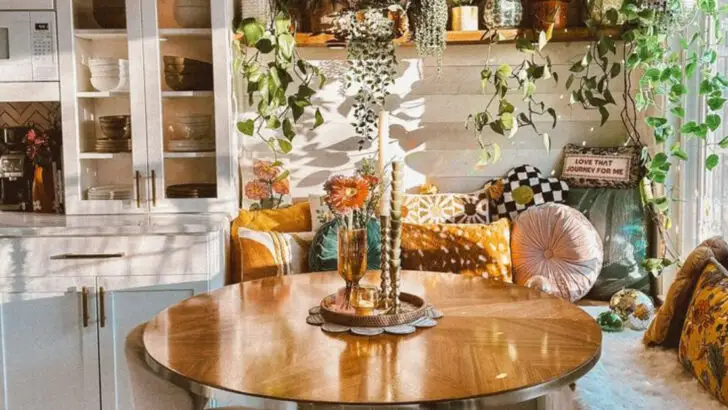Home stopped meaning “one place” the moment I packed a bag and left it. Turns out, comfort isn’t always a couch and a coffee mug. Sometimes it’s a plastic chair on a balcony in Hanoi. Or the way a stranger in Lisbon says your name. Travel has a sneaky way of rewiring you. It peels off the layers—routines, assumptions, all the stuff you didn’t realize was optional. Then it hands you something better: perspective. Suddenly, your hometown doesn’t feel smaller—but your ideas of home get bigger. More flexible. More human. These seven lessons didn’t arrive with postcards or souvenirs. They came in motion—on train platforms, side streets, and quiet mornings far from anything familiar.
Home Isn’t Just Where You’re From—It’s What You Return To
Traveling made me realize that home isn’t defined by geography alone. It’s the place that holds your routines, your favorite mug, and the smell you recognize even with your eyes closed.
After three weeks of hostel beds and shared bathrooms, walking barefoot on my own floors felt like luxury. It’s a reminder that comfort is found in the familiar and the ordinary aspects of life.
The essence of home is more about the intangible feelings and less about the physical location. It’s about returning to what grounds you, even if the world keeps changing.
I Miss the Ordinary More Than the Exciting
Big cities and beautiful landscapes are thrilling, but it’s often the simple, everyday moments I crave while away—morning light through familiar windows, or knowing exactly where the spoons are.
In Thailand, I found myself missing the sound of my neighborhood garbage truck—something I never thought twice about before. The ordinary can become extraordinary when seen from afar.
These small moments form the tapestry of daily life, making their absence felt keenly. Such realizations about the mundane make home feel more precious, highlighting the unnoticed parts that define it.
Space Means More Than Square Footage
In tiny guesthouses or train compartments, I learned to appreciate space not by size, but by usefulness. Home now feels bigger because I use it more intentionally.
A kitchen counter once seemed small—until I cooked dinner on a balcony using a single burner and no fridge. It was about making the most of what I had.
Space is redefined by how it’s utilized rather than its dimensions. This lesson in adaptation and resourcefulness changed how I perceive my surroundings, making each area more meaningful and significant.
Comfort Can Be Relearned
Things I once thought essential—air conditioning, couches, closets—aren’t universal. Travel taught me that comfort often comes from attitude and adaptation, not things.
Sleeping on a mat in Japan didn’t feel like a downgrade after the second night—it felt peaceful. The simplicity offered a new kind of comfort I hadn’t known before.
The experience reshaped my understanding of comfort, showing it’s more about mindset than possessions. It’s a reminder that adaptation can lead to contentment, even in unfamiliar settings.
I Appreciate My Community More Deeply
Being anonymous in a new country can be freeing, but I began to miss familiar faces and shared references. Home has a rhythm, and being known within it feels grounding.
After explaining my life story to five strangers in a row, hearing “Hey, you’re back!” from my barista was oddly emotional. It was a comforting reminder of shared histories.
Community provides a sense of belonging and continuity that travel often disrupts. This newfound appreciation for familiarity made me cherish the connections I have more deeply.
I Redefined What I Actually Need
Living out of a backpack showed me how few things are necessary to feel settled. That lesson followed me home—I buy less now, and I let go of more easily.
If I didn’t miss it on the road, maybe I didn’t need it in my closet. This realization led to a decluttered lifestyle focused on essentials and experiences.
The experience taught me to prioritize what truly matters, redefining needs versus wants. This minimalistic approach has brought clarity and simplicity to my life at home.
Food as a Universal Language
Food has a magical way of bridging cultural divides. At a street food market, I witness how flavors tell stories and create bonds. Sharing a meal becomes an adventure, where each bite is a dialogue between cultures.
This universal language of food enriches my view of home. It fosters a deeper appreciation for the culinary diversity I encounter abroad and brings to my own kitchen, making home a melting pot of global flavors.

